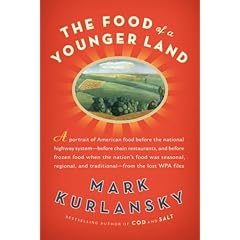Why Food Matters

There has been quite a bit written lately about the way we should eat. This continues the long line of American prescriptions about eating, going back to the nineteenth century concerns about "roughage" and regular bowel movements, the early twentieth century concern for bland food, and our current concerns about everything from cholesterol, sugar, carbs and whatever. We seem to want to force people to eat the way we want them to. It is very puritanical, as we Americans are.
Personally, I am unconcerned about the way we "should" eat. I eat to fuel my body and because it is a pleasure. But I am fascinated by how our puritanical roots inform the way we talk about something that gives us pleasure, that is food. Our language is punitive. There are lots of "doing what is good for you" type phrases. This is why food matters. It allows us to see ourselves today. And by looking at the past, it allows us to see attitudes and culture of the past.
Because everyone eats, food crosses class lines, as well as all of those other lines - gender, race, education, geography, politics, economics, etc. And we can imagine what our forebears went through in their eating, which gives us a tangible way to identify with them.
SoFAB will celebrate its first annivesary next week. We opened the first week in June, 2008. We can celebrate having survived for a year. But we can be secure in realizing that a food museum in not a frivolous enterprise (although it is a fun one), but one that will preserve for the future a special window on our culture.

